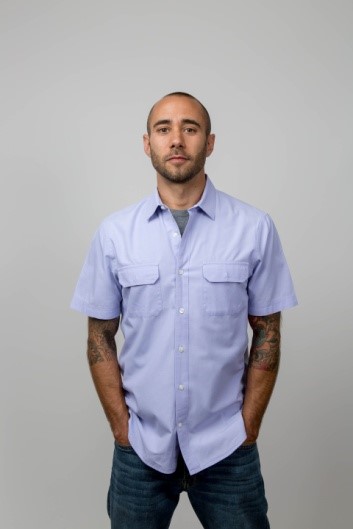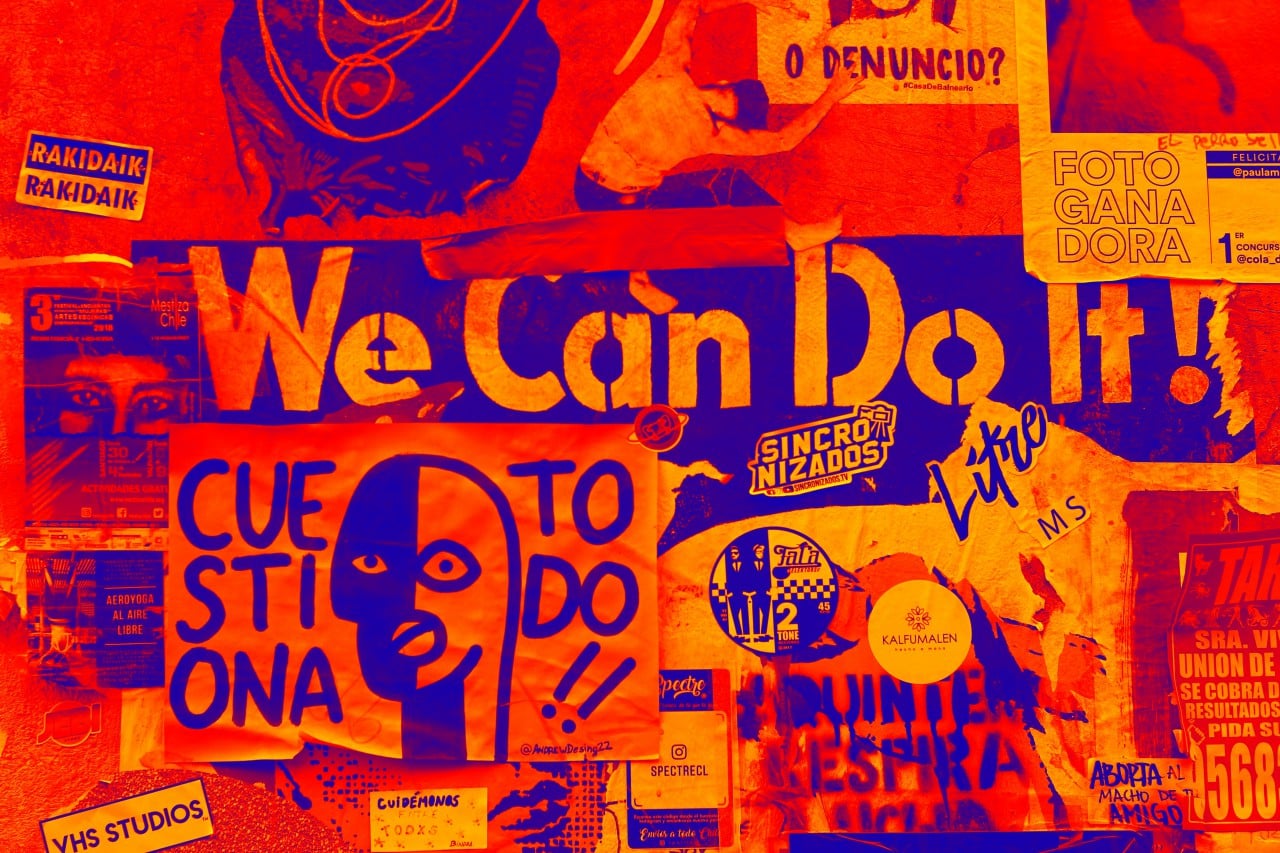The Complexities Of Race – In Conversation With Dr. Armeline

Sue Dhillon is an Indian American writer, journalist, and trainer.
Human rights Professor Dr. William Armeline Breaks Down the complexities of race.
I was driving when I first came to know Human Rights Professor Dr. William Armaline. I heard him on KQED during a panel discussion on race and racism happening at San Jose State University. It was a follow-up discussion after a hate crime had taken place on campus sometime before that.
While the discussion was thought-provoking and passionate, it was Dr. Armaline of all the panelists who had caught my attention. While I’ve been writing here for decades and I feel now more than ever a necessity to bring heated and touchy topics like racism, white privilege, gender equality, sexual harassment, the genocide of the natives here in America to the fore.
While none of these topics are pretty and most avoided they are topics that need to be addressed none-the-less. This is why I had gone into the news business, to begin with. I was young and passionate and felt I could share stories, meaningful ones that others did not want to touch. I wasn’t afraid. I was ready to take on the grit and grime and exploit and shed light and offer insights.
And perhaps even provoke thought. Yes even piss some people off, not because that was my intention, but it is only inevitable when you speak of things that cause discomfort and trigger insecurities and deep-seated fears within people. If you’ve read any of my previous writings you see the sheer lack of timidity in my words. I’m upfront and like to keep it real.
So without further ado let me introduce you to the exceptionally eloquent scholar Dr. William Armaline. His students and I as well have taken a liking to refer to him as Dr. Bill. Upon hearing him speak of such a touchy subject in such a powerful and non-threatening and very matter of fact way I knew I needed to talk to this man.
And let me tell you, Dr. Bill does not disappoint. He was as passionate and as enthusiastic as ever and even more powerful in person than on the radio. He speaks fluidly and from the heart. Here’s a part our exchange. I hope it gets you thinking or at least makes you feel a certain something.
SD:
“So let’s just start with your background and how you got into this and why you chose this subject of study.”
DR. B
“Oh ok, so I’m originally from Ohio. My family’s from Youngstown, Ohio which is a mob town and now is brutally poor. My family is old labor left. Where we were from we brought up to never trust three groups of people, bosses, policemen, and politicians.
And there’s a reason for that. I was from an Italian family in Youngstown and I was raised from a very young age with pretty serious working class anti-racist anti-capitalist views. And also growing up poor gives one a certain amount of passion for work. To be honest to be a professor was not really a career goal or any kind of goal. It was all accidental. I was like any other working class working poor kid.
Through undergrad, I was fortunate enough to be able to reconnect with my father as a young adult. I went to the University of Toledo and the reason I went there was because my father was a professor there and it was the only place I could afford to go because I could go for free. And so he and I took that opportunity to reconnect our relationship which is the best decision I ever made in my life. Now my father and I are closer than I am to anyone else on the plane……..
My entire career I’ve been working with young kids of color or quote end quote disadvantaged youth. When I started doing that and realizing my father was a teacher so maybe I could do this and when I started doing that and started connecting with the students and had a knack for it in the classroom I fell in love with teaching completely.
I first started teaching in Toledo in high school in a housing project called Scott which is about 98% African American. I was doing it really well and enjoyed it. I left there and ran a boys and girls club and enjoyed that, but on that kind of work, you can’t make a living. I was running an entire school of 600 kids from 5-18.
You need to make moves and go to graduate school. I had no desire to become an academic or professor, I was just very politically connected to these issues and then she helped me to understand that this is one way I can live a decent a life and work on these issues and she convinced me to come to school there, University of Connecticut.
I wrote my dissertation on disadvantaged kids and those experiences were incredibly formative experiences. That’s what inspired me and some amazing human beings who’ve been through so much and exceeded in such dire circumstances and reminded me of the people I came from.
That continues today, so I find myself seeking always communities of radicals and working poor and working class people who are ready to change the way our world works. And my job is to be of service to them and to fight hard as I can and use the privilege I’ve gained becoming a senior faculty member somewhere to do something with that privilege and that status.”
SD:
“That speaks volumes to who you are. I was going to ask, but I get it now. I see why there is this great empathy factor. And the need and desire to really understand fundamentally racism and if you’re not that person who lives that plight and if you’re not that black man who is discriminated against day in and day out, you don’t really get it, right?”
DR. B
“It’s interesting my friends have busted me for this for a very long time, as you can tell I’m racially ambiguous. My family is southern Italian, very dark and it’s been very rare in my life in my daily interactions with people that I’m constructed as being white and this is only further complicated by the fact that I have a black wife and black kids and for at least since I was in my early 20’s I’ve lived in black neighborhoods so the experience of race to me has always been a stigma so becoming a scholar of those issues and really being able to dig deep into those concepts has helped me to understand that.
So the thing about race that’s so complicated is that it has a couple of aspects to it. So racism from the point of ethnicity, so I can ask you right now, what’s your ethnicity?”
SD:
“Indian”
DR. B:
“So you have a choice in that right? So ethnicity, one has agency in it. Ethnicity has to do with culture, cultural traditions, cultural aspects that are a part of your identity, your family, your being…..and we’re in conversation with that so that’s something you can represent. Is that how race works? So what happens when you get pulled over?”
SD:
“I’m non-white. A brown woman.”
DR. B
“You mean the police officer doesn’t stop and ask you are you, Latina, are you Indian? So see race is ascribed to you. There is no agency in that. You are constructed as. By definition, race is meaning ascribed to otherwise meaningless atypical characteristics.
So on a day to day basis, racial ambiguity is a really interesting thing. However, that’s not all race is also structure. So because race is structure, I, for example, don’t come from five centuries of slavery. Southern Italians don’t have the most wonderful history in that regard.
We weren’t considered whites until after World War II in fact in the United States, but even that said I can’t claim that I suffer the structural deficit of an African American does who descended from slavery. So for that reason, I don’t give a shit how I’m constructed I still say that I’m white.
I am who I am and even though
Race is real complicated in that regard. And we’re waking up in the United States as a people to realize we don’t as a people understand the way we think we do.
I’m seriously scholarly about these issues because I study these issues that why you hear me being so conceptually clear about it, but as a personal experience it’s a lot more messy than that for all the reasons I just gave you.”
SD:
“And this is why when I heard you on the radio this is what makes it digestible and would help people digest having that kind of scholarly breakdown.
Generally speaking to a lot of people there is an automatic defense mechanism that kicks in. So really the point here is what is the easy way to have that conversation and have them be defenseless.” And then I just let Mr. B break it down. To listen to the entire interview go here.
DR.B:
“Well I don’t know that there’s an easy way. It’s something like other things that one has to want to understand. It’s one of those things where if you have a heart problem and you needed a heart surgery you would ask a heart surgeon how to understand that situation.
However when we start talking about things like race and racism it’s like society decides to forget there are people who’s careers are dedicated to understanding these things and what they mean and how they work, but because it’s a social phenomenon and a political phenomenon, it’s like I know what I think about this.
Everybody thinks they’re an expert on things if they think it’s something they can have an opinion on, but they would never claim that if they needed a heart surgery or they would never claim that in any other area of expertise so the first thing they need to understand is that you might be treading on something you just don’t fucking understand. You might need to be open to the fact that you don’t know shit.
To be real clear in the same sense that I would be real clear about the fact that I don’t know shit about heart surgery and I’d have to ask a cardiac surgeon about heart surgery.
So the first step in this conversation would have to be humility. Humility in the sense that if we’re having this conversation it’s cause you don’t know something right? So you might want to be open to learning something. And if you’re not then why are we even going to have a conversation?
So that’s the first part. There has to be a mutual understanding about these things and everyone needs to be open to learning about that stuff.
And another thing you talk about …….
I teach students of all races and ethnicities because we’re an incredibly diverse school at state, but I actually teach the wanna be cops.
You want to talk about someone who’s going to be defensive. Talk to a wanna be white police officer about race, criminal justice, these sorts of things so trust me I understand exactly what you’re talking about with that push back.
So the history of race and whiteness in this country is actually very interesting along these lines. Studies of whiteness, the history of the concept of being white, white supremacy have pointed out a number of things and one of the things it’s pointed out is a concept called the wages of whiteness. So in other words it’s not as if everyone benefits equally from white supremacy.
I’ll give you a perfect example so all of these militia white, disenfranchised cause they are, disenfranchised white working class white people in Oregon, Michigan, more working class, kind of angry working class white folks Trump is targeting very successfully who are rightfully angry about their diminishing return on all sorts of things, education, work all of the promises they were given in terms of middle class benefits.
It’s been stripped from them. And that’s true.
So how does the racial discourse operate for example in some of these areas particularly in the southwest right now Texas, Arizona, Mexico, New Mexico, San Diego, Southern California. So you talk to people and people will blame fucking immigrants. Whether it’s Mexicans, take your pick, right?
Here you have the confluence of racism and capitalism at play in a way I’m trying to illustrate and so the wages of whiteness refer to the little petty crumbs that owning class whites, the real beneficiaries of white supremacy dish out to working-class white people sometimes those things are feelings of status and superiority and we do that through citizenship rights we do that through just general ideology about these people are pieces of shit, these people are valid and worthy poor and people worthy of respect and care, but if it’s these people fuck em.
And that’s basically the story of reform in the 90s the Clintons brought to us wrapped up in a package with a bow ……..
They gave us welfare reform. They turned to working-class white people and they basically said the reason you’re in the shitty position you’re in because there are all these black welfare queens having kids to pick up welfare checks. Totally false. Empirically false.
There isn’t a single scholar white or black that would argue with that point. Total lies. Total fantasy, but it worked and it worked because it delivered the wages of whiteness to people who by the way undercut themselves in making that move.
The majority of people on welfare at that time were white people.
Right?
So now you see where I’m going with this and similarly if you think about the southwest right now Mexican’s take away their fucking jobs. It’s white owners of majority white corporations who have decided to move to cheaper labor elsewhere and frankly fuck the Mexican and the American worker. White or not.
The greatest ally of the white working class worker who has been disenfranchised over the past several decades is none other than the Mexican worker. The most dangerous thing for US corporations would be labor agreements between those populations. They don’t want that. It’s far easier to divide and conquer those populations. To deliver wages of whiteness
To those working-class white folks. Make them think they’re worth a shit. Meanwhile, we’re laughing at them. We’re not taking that shit serious. Trump isn’t taking that shit serious. It’s something that benefits him.
Most of the white folks I engage with are working people, right who again many times believe what they believe because of these very same kinds of things and don’t see the benefit in solidarity with people of color who they are helped to suppress. They just don’t see it. They say why would I have any skin in that game?
To be very frank I’m not someone who thinks moral arguments are terribly effective over the long term. It has to be more than that cause moral frameworks are not terribly sturdy. If we’ve got five different people in the room we’ve got five different frameworks and those moral frameworks could change year to year month to month depending on what that person experiences and all of that kind of stuff.
You’ve got to go deeper than that. You’ve got to get to what their interests are going to be. How they think about reality and their place in the world. How they think about others.
And so for me, the most effective conversations I’ve had with white folks have been in the classroom. Outside of the classroom it’s really just discussing the imperial history of this system and the ways in which many of us cross race in certain class and frankly have been part of that manipulation and have been part of the populations who’ve been manipulated by racism, ideologies that go along with racism.
And often when I have this conversation people find themselves scratching their heads a little bit and think maybe I do have skin in this game in ways I didn’t think about.
I’d love to say you could just say don’t you care about human beings and I would love to say all that shit worked on its own, but it doesn’t.
People are really eager to hear things they want to hear. And if you tell that white working class person as Trump is right now, you know the reason you’re having such a hard time is cause of that Mexican guy down the street. You know you kind of don’t trust him and you know you kind of don’t like him anyway. See how easy it easy to blame that person?
The person that has nothing. The person you take no risk in blaming. The person that can’t do anything. He’s not going to fight back. What happens if you start fighting against the people who actually fucked you over? Right? That takes real courage. You want to really be angry at someone who took something from you. Why don’t you find out who those people are? That’s real courage. That’s not what someone wants to hear.”
And there’s more. It was such a lengthy conversation, so insightful and so thought-provoking I’ve decided to share the entire interview, but in a series of pieces in the coming weeks. You can also listen to the entire interview on sound cloud.
To check out some of Dr. William Armaline’s work click here.
To see more on this very subject check out my write up on Colin Kaepernick and why he is a true American hero.



